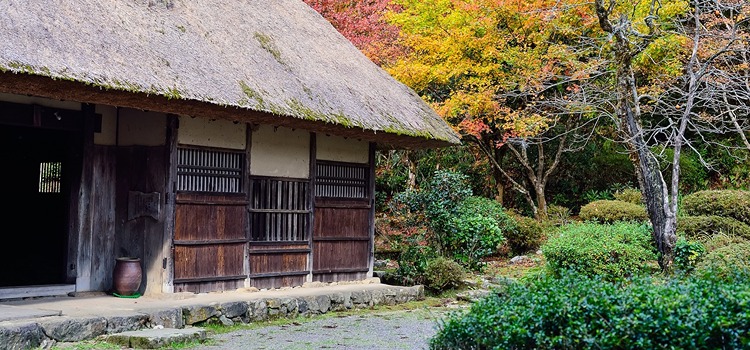
Japan is considering tightening rules against abandoned houses, as the number of empty homes continues to grow. The government is proposing to levy punitive taxes on owners of unkempt properties, in a bid to prevent them from becoming a safety hazard or eyesore, and to encourage them to either demolish or maintain their homes. The move comes as Japan’s population shrinks and ages, leaving behind a growing number of vacant houses. Akira Kitado Nikkei staff writer explains this in an article for this economic Japanese media.
Japan proposes tightening rules against abandoned houses
Owners risk paying six times more in property taxes if they let homes rot
Alarmed by the vacant houses that are multiplying across Japan as the population shrinks, the government is considering heavier property taxes on those that are unkempt.
A proposed legislative amendment to the related law would allow the government to levy punitive taxes, but critics say the measure is bound to fail as it does not address the underlying issue.
The number of vacant houses not serving a residential purpose has almost doubled during the past two decades, to nearly 3.5 million in 2018, according to an official housing survey, with the figure expected to reach 4.7 million in 2030. The government says these akiya, disused houses, could cause security and sanitary problems as they decay.
“Vacant houses are expected to increase further,” said Tetsuo Saito, minister of land, infrastructure, transport and tourism. “We need to urgently strengthen countermeasures.”
Saito was speaking at the plenary sitting of the House of Representatives on Thursday, explaining the bill.
The Vacant Houses Special Measures Act, which took effect in 2015, designates vacant houses that pose a risk of collapse as “specified vacant houses” and enables municipalities to issue recommendations and orders to their owners. If improvements are not made, fines can be imposed, potentially followed by administrative enforcement against the properties.
However, the law has failed to reduce the number of vacant houses because “disproportionately few properties fell into the ‘specified’ category,” said Yuji Yamashita, head of an association for Vacant House Managers.
The proposed bill to amend the law — approved by the cabinet in March and currently under Diet deliberation — is expected to give authorities stronger control. Vacant houses usually gain a property tax reduction because they are still considered housing lots. But the amendment would eliminate the reduction for unkempt akiya, even if they are not specified as risky buildings.
As a consequence, an owner’s taxes on such properties could jump sixfold, according to the Ministry of Land, Infrastructure, Transport and Tourism.
Separately, the city of Kyoto, one of Japan’s most popular tourist destinations, seeks a breakthrough with its own taxation scheme. The city recently announced that in 2026 it will start imposing a tax of 0.7% on the value of houses that are not in regular use, including vacant and holiday homes. “This measure is to promote effective use of vacant houses and to supply useful properties to the housing market,” a city official explained.
Yamashita, the head of the vacant building managers association, said abandoned houses have become a more visible issue where he lives. “We frequently hear complaints about overgrown plants and nuisance insects in derelict properties in our neighborhood,” said Yamashita, who also runs a construction business in Kagawa Prefecture, in western Japan. He worries that “roof tiles could be blown off by a typhoon and hit pedestrians.”
Before its rapid industrialization, Japan grew up with three generations of family members living in the same home. “Those days are long over,” said Masayuki Nakagawa, a professor of economics at Nihon University. “In many cases, however, children living far away from their parents are not adequately prepared for what to do with their parents’ houses after they die.”
Some experts say another contributing factor is Japan’s relatively small market for existing homes. According to the ministry, unit transactions of pre-owned houses made up less than 15% of total housing transactions in 2018, in sharp contrast with the U.S. at 81% and the U.K. at 86%.
“In this sense, vacant houses are an issue unique to Japan,” a representative from Katitas, a Tokyo-listed company that purchases vacant houses, remodels them, then flips them, told Nikkei Asia.
A woman in her 30s living in Tokyo, who recently sold a house in Akita Prefecture she inherited from her late father to the company, said she wanted to do away with it quickly due to the burden it would have on her. “It would be difficult to manage the house from afar, as the roof would need to be cleared of snow in winter.”
Osamu Nagashima, a real estate consultant based in Tokyo, doubts the amended law will have far-reaching effects. “A tax increase will not be a powerful incentive to demolish a vacant house because property taxes are low in rural areas anyway.”
The problem will remain unsolved “if there are more new houses being built than vacant houses being addressed,” he said. “The fundamental problem is that the government has not changed its basic stance of giving generous tax incentives to new housing construction, even in a depopulating society.”
You can read the article in the Nikkei website here.
